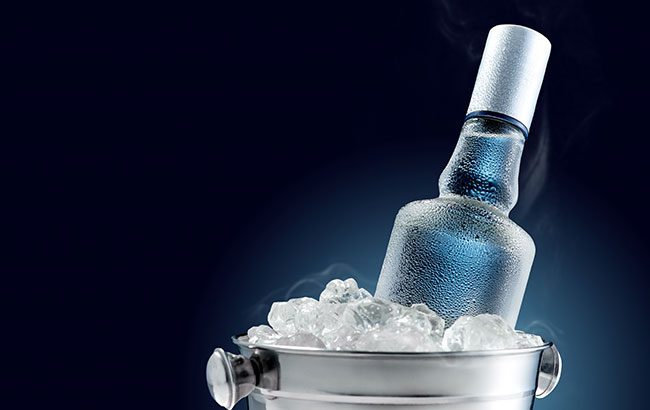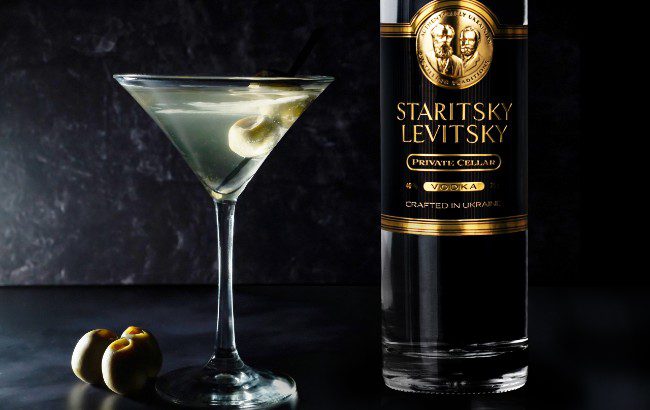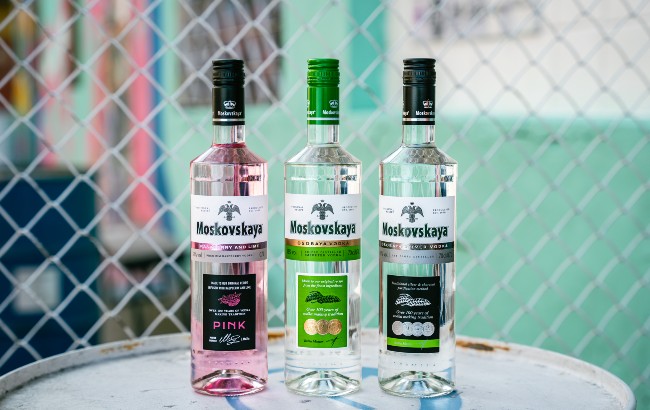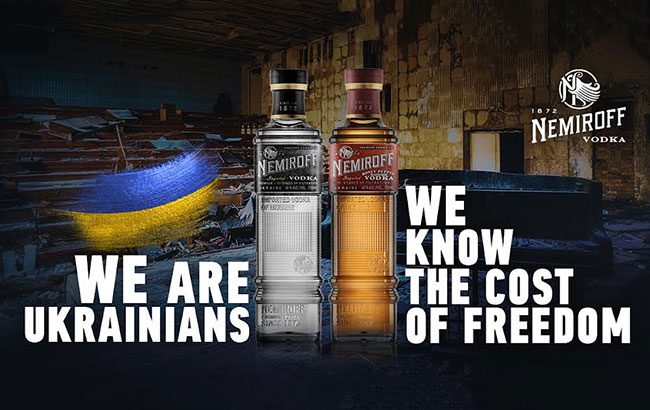Vodka: conflict of interest
By Melita KielyThe war in Ukraine could be ruinous for Russian vodka brands, while simultaneously creating opportunities of discovery for labels from other countries.

Drastic measures have been taken by leading spirits brands since Russian president Vladimir Putin launched his war on Ukraine. Governments globally have imposed sanctions on Russia to stymie the invasion. In protest and to apply economic pressure, consumers worldwide have spoken with their wallets by boycotting Russian-made goods.
This abstention from Russian brands has left the country’s spirits – particularly vodka – in a ‘precarious position’, says analyst Global Data. The US government, for example, put sanctions on state-run liquor stores to stop selling Russian-made spirits – including vodka. In the UK, supermarkets and bars cleared their shelves of Russian bottles.
According to Global Data’s Q3 2021 consumer survey, 41% of people around the world completely or somewhat agree they would boycott a brand that did not align with their personal beliefs or values. In addition, 51% of people pledge their loyalty to brands that support social causes and human rights.
Carmen Bryan, consumer analyst at Global Data, says: “Global Data’s survey reveals that brand loyalty is heavily influenced by alignment to one’s values. This puts Russian vodka brands in a precarious position, as prolonged conflict will not only damage immediate sales, but may also cause permanent disillusionment against Russian commodities in the long term.”
At the end of March, Nielsen released the results of an up-to-date study on Russian vodka sales in the UK. The data analyst found the value of the total Russian category is down by 7% year on year, while volume is down by 6%. Russian Standard, the biggest Russian vodka brand, has seen its value decline by 18.1%, and volume by 16.2%. Nielsen said the delisting of Russian Standard in the UK has left an opportunity gap of £111 million (US$145.8m) in the vodka category.
Solidarity with Ukraine
Russian vodka was hit with a 35% additional tariff in the UK, after the government imposed the extra import tax on hundreds of Russian products worth more than £900m (US$1.2m) in March.
But with the punitive measures on Russian vodka, Global Data also noted an opportunity for alternative vodkas to take their place.
James Rackham, owner of UK importer and distributor Emporia Brands, believes the sweet spot to crack is the sub-£20 segment of the vodka category.
“The vodka market has been pretty polarised in terms of the value end,” he says, referring to the sub-£20 price bracket. “The interesting big player has been Russian Standard, but if Russian Standard falls off the market, it will be interesting to see what will replace that brand. That sub-£20 market is huge.”

Russian Standard did not respond to a request for comment. However, other brands have rejected Russia’s invasion and expressed solidarity with Ukraine. Halewood Artisanal Spirits, for example, swiftly moved production of JJ Whitley vodka from St Petersburg to England – just two years after opening a £5 million distillery there.
“The Halewood group is 100% opposed to the Russian army invasion of Ukraine,” stresses James Stocker, marketing director, Halewood Artisanal Spirits. “We have expressed our support of our Ukrainian customers, our largest export market.”
In 2020, Global Data’s Intelligence Centre valued the global vodka market at US$75.7 billion, accounting for 11.3% of total global spirits value. The vodka market’s value is expected to continue growing from 2020 to 2025, but at a slower pace than other categories, thought to be driven by a ‘lack of innovation’ and ‘limited premium positioning’ compared with other spirits.
However: “With the way the market has been polarised, and now with changes to Russian vodka coming up, particularly Russian Standard, there’s a real opportunity for imported vodka,” Rackham says.
In Emporia’s portfolio is Staritsky Levitsky, a Ukrainian vodka brand. Last month Emporia donated 40 cases of Staritsky Levitsky Private Cellar, which retails for £50 a bottle, to raise £20,000 for the British Red Cross Ukraine Appeal. However, that could be the last shipment of the brand Rackham has in stock for some time – and he’s not alone in this predicament, he says.
“The Staritsky distillery is just north of Lviv – it’s in a war zone, so it’s mothballed; nothing happening, no transit of any commercial stock coming out of Ukraine. We’re in pause mode until we know where we are,” Rackham explains. “Demand has been very strong the past month, and we’re virtually out now.”
Ukrainian vodka Nemiroff has also had to suspend production at its distillery in Nemiryv because of the war. But, Yuriy Sorochynskiy, CEO of Nemiroff, echoes Rackham’s comments. “Currently, we are seeing a boom in demand of Nemiroff worldwide, with intense interest in Europe and the USA, both in the off-trade and HoReCa [hotel, restaurant, café],” Sorochynskiy reports. “For some markets, this will lead to shortages within the next two to three months, according to our estimations, without production relaunching, and for other markets for four to six months.”
Russia was a “huge vodka market – the world’s biggest in volume and second in value”, Sorochynskiy says. However, Nemiroff has had a “limited presence” in the country since 2014, after the occupation of the Crimea and Donbass regions. A local distillery in Russia had, until the recent war, been given the franchise rights to produce vodka under the Nemiroff trademark for the domestic Russian market. This was quickly cancelled after the Russian invasion on 24 February, as a direct consequence of the nation’s “military aggression”.
However, challenges remain: “Based on the current status and full ignorance of legal requirements by Russia, we do not have any legal remedies to enforce the restriction.”

Non-Ukrainian vodka brands, particularly those from Eastern Europe, have begun to distance themselves from any Russian connections for fear of being boycotted. Moskovskaya, owned by Amber Beverage Group (a subsidiary of Stoli owner SPI Group), has long celebrated the Russian ties in its heritage – but the brand is made entirely in Latvia at Amber Beverage Group’s Latvijas Balzams distillery in Riga.
“For us, we have a greater issue than other brands, having the name ‘Moskovskaya’; we are perceived as Russian,” says Benedikt Fimpel, global brand director vodkas, Amber Beverage Group. “We had a lot of clarifying to do to explain we’re produced in Latvia and have been for more than 100 years already. There is Russophobia happening. We see it from retailers asking us for statements, how Russian we are, where we source our liquid, our grains, closures, bottles. All of a sudden, a normal sales sheet wasn’t enough.”
Consumer research
Nevertheless, he remains optimistic about Russian brands and those perceived to be Russian. When the war began, Moskovskaya launched consumer research panels in eight markets, including the Baltics, Spain and Italy. The research focused specifically on the Russian topic, asking how people consume Russian products, if they avoid them or try to avoid them, and if they still choose products for consumption in the same way as before the Russia-Ukraine war.
The consensus, Fimpel says, is “damage for Russian, or apparently Russian brands, is not yet as strong as we think. We had overwhelmingly positive sentiments about the brand, still strongly tied to quality,” Fimpel reports.
“When we looked at what the name communicates, the biggest score was achieved on ‘communicates quality of vodka’. That was, for me, the most crucial insight: that the consumption behaviour has not changed much. So 60%-70%, depending on the market, are still staying true to their consumption behaviour, consuming the brands they want to consume.”
He says the research has reiterated the importance of being “fully transparent about our supply chain”, and urges others to do the same. “Even if there were some Russian ingredients or logistics involved, it is better to mention it than hide stuff. Not being transparent will damage the brand in the long term,” he adds.
“It’s not your mistake that you’re a Russian vodka because vodka is tied to Russian culture. Not everything Russian is bad; just the Russian regime and support of the Russian regime that is bad. Russian politics is absolutely bullshit. Anything that supports Russian politics should stop.”
For Finland’s Anora Group, which formed last year after the merger of Altia and Arcus, Russia and Ukraine were two key markets for the company’s Finnish vodka brand, Koskenkorva.
“It’s horrendous,” says Kirsi Puntila, senior vice-president international, Anora Group, about the war in Ukraine. “We were extremely shocked and sad about the situation. In 24 hours, we had to very quickly change our export strategy. We’ve suspended our business in Russia, and we are supporting Ukraine financially and otherwise.”

This change in strategy has included a pivot to focus more on Koskenkorva’s “other interesting markets” outside of Ukraine and Russia, such as Slovakia and Poland. “Then, of course, we are already quite dynamically growing in Germany, Switzerland, and now Spain and the UK,” Puntila adds.
Anora Group has also upped its social media investment to stress that Koskenkorva is 100% Finnish. “There have been some questions from abroad because maybe, for non-Finnish-speaking people, Koskenkorva might sound Russian,” Puntila says. “For us, Finnish and Russian sounds completely different, but we have to take that seriously, and make sure we educate consumers about Koskenkorva.”
Unfortunately, an additional knock-on effect from the war is that it has exasperated already-rising costs of grains and other materials. “There’s a lot of uncertainty in all the raw material prices at the moment,” explains Puntila. “There’s a lot of volatility in the market – oil prices, lack of materials from glass or caps or pallets; there’s a huge implication for all of us in the industry.”
The situation is troublesome for Ukrainian brand Nemiroff. “We are doing our best to reopen the distillery again,” says Sorochynskiy. “We are responsible for thousands of families’ lives – our employees’ and our partners’. One of our glass suppliers was in an area neighbouring the first place that was attacked by Russian troops, about 30km north of Kyiv. Now its status is unknown; staff were evacuated. Label producers are in the cities that are under Russian fire – Kharkiv, Sumy. The transport-packaging producer is in the city, which is now temporarily occupied by Russia.”
Logistics continue to pose challenges for the brand, with “lots of roads, railways and bridges destroyed”, and unavailable “air and sea connections”, Sorochynskiy explains.
However, the brand’s “indomitable spirit” continues even during its darkest hour, and it is planning on safely reopening the distillery as soon as possible.
“I imagine once the war is over, and we start to work at 150%, we will rebuild and renovate Ukraine,” Sorochynskiy adds defiantly. “We are paying a huge price for European values and even for human rights. But we are sure our future is worth it. These three weeks have been the real-life demonstration of the indomitable spirit of our nation that Nemiroff was talking about worldwide these last three years. Free-minded, bold-spirited people, who create their own destiny. Proud to be Ukrainians.”
Related news
SB meets… Nidal Ramini, Brown-Forman
